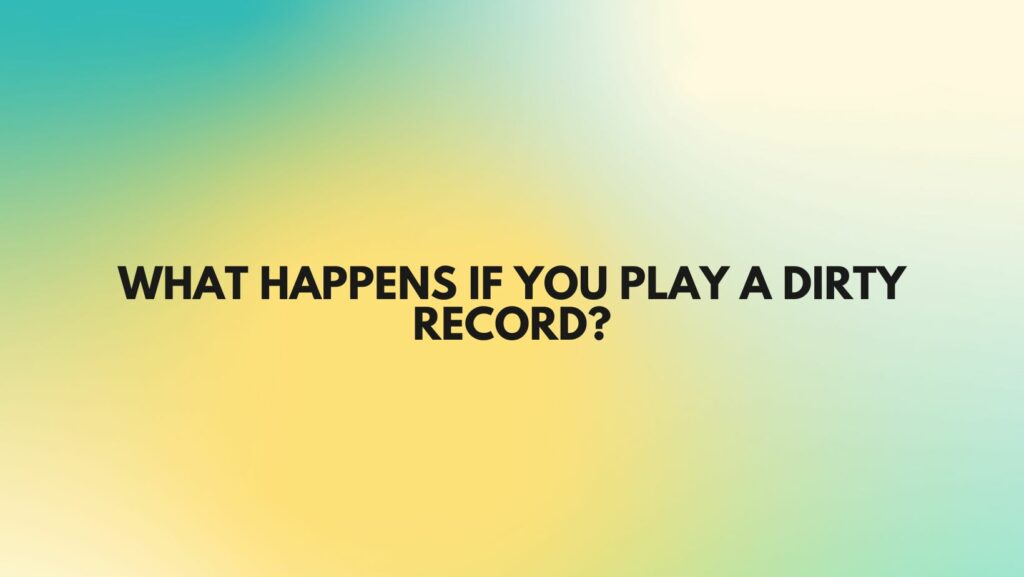In the world of vinyl enthusiasts, the allure of spinning a cherished record is often accompanied by the temptation to indulge in the rich soundscapes and nostalgic melodies encapsulated within each groove. However, the decision to play a dirty record can have far-reaching consequences that extend beyond the immediate pleasure of vinyl playback. Let’s embark on a journey to unravel the effects of playing a dirty record and explore the potential implications for both the record and the turntable.
The Impact on Sound Quality
At the heart of every vinyl record lies a delicate surface etched with intricate grooves that serve as the vessel for capturing the nuances of sound. When a record becomes dirty or contaminated with dust and debris, the stylus encounters obstacles as it traverses the grooves, leading to audible imperfections such as pops, crackles, and surface noise during playback. These sonic artifacts detract from the overall fidelity and clarity of the audio signal, diminishing the immersive quality of the listening experience and detracting from the intended musical performance.
Increased Wear and Tear
Beyond the sonic implications, playing a dirty record can also pose risks to the physical integrity of both the record and the turntable’s stylus. As the stylus navigates the contaminated grooves, it may exert excessive pressure or encounter uneven terrain, leading to accelerated wear and potential damage over time. Furthermore, microscopic particles embedded within the grooves can abrade the stylus tip, causing premature deterioration and diminishing its ability to track the record accurately.
Potential Damage to the Turntable
In addition to the risks posed to the stylus, playing a dirty record can also impact the health and performance of the turntable itself. Dust and debris present on the record’s surface may accumulate within the turntable’s mechanical components, leading to increased friction, mechanical strain, and potential malfunctions. Over time, the accumulation of contaminants can compromise the overall stability and functionality of the turntable, necessitating costly repairs or maintenance to restore optimal performance.
Best Practices for Preserving Vinyl Integrity
To mitigate the risks associated with playing dirty records, it’s essential to adopt proper maintenance and cleaning practices. Investing in a high-quality record cleaning kit equipped with a carbon fiber brush, anti-static solution, and microfiber cloth can help remove surface dust and debris, restoring the record’s sonic clarity and minimizing the risk of damage to both the record and the turntable.
For more stubborn dirt and grime, consider utilizing a record cleaning machine or wet cleaning method to deep clean the record and remove embedded contaminants from the grooves. However, exercise caution and adhere to manufacturer guidelines to ensure safe and effective cleaning without causing harm to the record surface or turntable components.
Conclusion: Cultivating a Reverence for Vinyl
In conclusion, the decision to play a dirty record can have significant implications for both the record and the turntable, ranging from diminished sound quality to increased wear and potential damage. By prioritizing cleanliness and adopting mindful techniques, enthusiasts can preserve the integrity of their vinyl collection and enjoy the timeless magic of analog audio for years to come.
Ultimately, by understanding the consequences of playing a dirty record and implementing proper maintenance practices, enthusiasts can cultivate a reverence for vinyl that honors the artistry and craftsmanship inherent in each musical masterpiece. After all, in the world of vinyl, the pursuit of sonic excellence and preservation is a testament to the enduring allure of analog audio.


